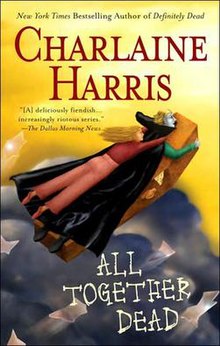Aye, Lass, I recall the first I saw a mermaid. I was young then, and captain of a whaler — Captain Elizabeth Jackson has a nice ring to it, I always thought. You’d never guess to look at this old lady that I was a whaler once, would you? Bring me a cup o’ the bumbo and I’ll tell you all about the siren: her flashing metal fluke, the cold fishy gleam in her eyes.
Thank you for the bumbo. That’s the stuff! Show me what you brought?
Aye, she was one of mine: the scales overlap just so, like I took them yesterday off the lathe. More than a hundred scales for each tail. No wonder my hands ache so. It’s not just age but the work, too.
And where was I? Oh yes: I was captain of my own airship in those days, the Sea Eagle. Two hundred fifty tons displacement, teak decking, a balloon the like of which you’d never seen. We’d fly from the Sandwich Isles to Russian America in two days with all three propellers spinning on their out-decks. Just to talk of it, it’s like as I can smell the coal burning in the sweet sea air.
Half the whaling fleet had taken to the air after the disaster of ’54, sea-ships jammed up in that Russian ice. They’d gone too far and stayed too long hunting their prey. We should have taken the disaster as we would have a light-blimp warning us away from a mist-shrouded peak, but instead we steered toward that siren’s song.
That was my first year as captain; I was thirty-four, still bright-eyed and hungry to make my fortune. We flew over the Arctic Sea twice, lowering our ladders and dropping food and blankets for the boys we couldn’t fit on deck. Cost a pretty penny, and nearly half those boys made it home alive.
Yes, most sea-sailors were men. You’d be too young to remember. But up in the sky, we didn’t give a pound of sand how your tenders sat. Wasn’t as many men eager to take in that sea air after ’54, nor were lasses so heavy as the men. On a sea-ship, displacement doesn’t matter as much as when you’re balancing against the balloon.
We had a handful of gals with keen eyes who could spot leviathans from one hundred fathoms in the air, and we gave chase. Leastways, we did in the early years. By ’60, we could spend days combing the sea looking for a whale with nary to show for it.
We’d taken them all, you see? Maybe if we’d stuck to sea-ships we couldn’t have found them all, the way we did with air-ships. The Right Whale, the Humpback–all gone.
‘Twas a rain-dappled eve in ’62 when we flew into San Francisco, nothing to show for our voyage but a lot of debt to the colliers, and most of the crew was sleeping aboard ship.
I was pretty skint myself, but stood everyone to some vittles and a round of drinks at The Yellow Dog. Twenty diners digging a deeper hole in my pocket, but if there were whales or anything else worth a penny beneath that briny blue, I’d need a crew.
Everyone ate in silence, and drank their ale. You’ve never seen glummer sailors than these gals. It was Doctor Cross who broached the issue, after I’d ordered a second round.
“Cap’n, the leviathans have fled the sea.” She was the eldest of the crew, and revered by them. Skin the color of coal, she spoke with an island lilt I couldn’t guess and she wouldn’t volunteer. I’d heard tell she’d served on sea-ships in her youth, dressed as a man. “Can you feed us every night, or should we find new ships to sail?”
Rocky stood. She was tall, too tall for a sailor, but had a steady hand and a fearful eye with the harpoon.
“Ya old bat.” Rocky made an obscene gesture at Dr. Cross, but fondly. “It ain’t the leviathans have fled the sea. They’re out there, if we can find them.”
That was what I loved about Rocky, and why she was the whole crew’s favorite: her skull was as thick as a humpback’s, and she’d thrash for days at the end of a harpoon if that’s what it took. Still, I bristled at her calling Dr. Cross old—I was hardly older than our doctor. Rocky was wrong about the whales, but the crew had to decide, not I.
“They’re gone,” Doctor Cross said. One sensible voice.
“You think we fished ’em all out?” Catalina, my first mate. “Could be,” she allowed, “But what’ll we do?”
“Fish something else.” A sly smile crept across the Doctor’s face.
“Nothing pays like whales,” said Rocky. “That’s why we hunt ’em.”
“Mermaids.” The Doctor looked around the table. “Mermaids would fetch a good price.”
“Less work than cutting whales,” Rocky mused.
“No such thing as mermaids!” Catalina laughed.
“I talked with a sailor who saw one off Lahaina just a week ago,” said Doctor Cross. “Perhaps there are more.”
“Wouldn’t make sense to be just one.” Catalina nodded. She ordered another round on my account, and it was agreed. Half the gals didn’t credit the doctor’s tale, but most of those were like the coal engines. I filled their bellies and their hearts, and they followed me as high as the gas-bags could lift us. We were sisters of the sea, and I the eldest.
***
‘Twas off Lahaina, as Doctor Cross had heard, that I saw the sea-siren. Rocky spotted her from the crow’s nest.
“Ahoy,” she called, “That’s a siren off our port bow.”
I spotted her in my spyglass: a spark of light off her tail. She was wiry like an eel, all muscle over tiny bones. Her arms looked like they’d snap off in a current.
Between her waist and hips she looked sickly, a greyish pallor with a sort of sharkskin look, rough and unhealthy. But below that, a huge muscular tail flashed in the sunlight like a fish, green as a copper church-steeple.
When she saw that she’d been spotted, she opened her mouth to sing, but let out only a croak.
Now, we’d not much experience capturing a live animal what would fight back. Whales, we usually bomb-lanced them, blew a hole in the back of their heads. But it went easy, this part: we lowered the crane, which dragged the fishing skein in the water behind us.
“Full speed,” I shouted, and the coal-girls fed the bellies of their engines. The propellers moaned furiously as the steam-whistles blew. The net closed around the mermaid, who flopped angrily as we raised the crane, lifting her on deck.
The siren flopped about, tangled in the net, unable to stand. The crew tugged at the skein, finding the edges and spreading them apart, while the mermaid twisted and screamed.
I’d heard tell that sirens sang sweetly, but this one yowled like a cat who’d wagered her tail in a game of dice. Mayhap their yowling was why that old salt Odysseus had cause to plug his ears.
The screaming did let me know that she could breathe air just fine. I’d half expected her to gasp her gills like a fish, but she wasn’t a fish any more than I was, or the whales had been.
Rocky stepped onto the net and unthreaded the mermaid’s arms from the holes they’d worked into it.
“It’s all right.” Rocky patted the mermaid along her scales, as though she was petting a dog. “Captain, she’s—”
The mermaid’s face twisted from fear to rage quicker than I could follow. She lunged at Rocky and tore her throat out with her teeth, sharp as a great white shark.
I still wonder how Rocky suffered, but right then I couldn’t see a thing: the crew descended as one upon the siren, all but the coal-girls on the out-decks, Doctor Cross, and myself.
“Stop,” I shouted, but too quiet for them to hear me above the mermaid’s final wail. They tore her apart for Rocky, and I didn’t see as I could stop them if I wanted to.
They fed her top half to the sharks, chumming the water with her arms and hunks of her body. But her bottom half—that stayed on deck. Sharks don’t eat brass plate, no matter how corroded by the sea it might be.
I knelt. My knees smashed the deck and I cried out, not from the pain but for Rocky—and for the siren, and for my crew.
‘Twixt the bends and bevels of her fluke plates, their fittings and bolts scattered about, I saw a smaller plate with straight sides and sharp corners: a plaque the size of a calling card, an address engraved upon it. I tucked it away in my vest pocket.
***
I spent that night in a Lahaina boarding house, where I listened to the sailor next door. Her ship had hauled up something, it seemed, for she’d gotten drunk on rum and taken a couple of dock-walking boys up to her room. Boys like that, they would have taken to sea once. Now they thought it woman’s work, and instead they ennobled themselves, strolling the wharves and selling their bodies to sailors.
I told myself the pleasure-wailing that carried through my room’s cheap walls was why I couldn’t sleep. Truth told, it reminded me of that terrible siren’s last moments. Every time I closed my eyes I saw the fear and the rage from her eyes, like she was accusing me of something, and so I lay in bed turning that brass plaque over and over in my hand.
It seemed to me that a man or woman who’d leave a calling card like that would have good reason to be found. ‘Twas a pretty bronze tail, doubtless, but unworthy of such vanity.
Perhaps most of these plaques never found their way into sailors’ hands: tossed overboard and nestled among the oyster shells and empty bottles of some octopus’s garden, or unseen among a tail sold for scrap by a hungry whaler’s crew. Mayhap only diggers and worriers such as I would pocket them, or mayhap only we were foolish enough to have hunted a mermaid.
I still hadn’t shut my eyes by the hour dawn’s pale pink tentacles reached between the shutter slats, and I saw the world through a sleepless haze as thick as our engines’ coal smoke. My heart swayed like the Sea Eagle in a heavy storm, and the plaque felt like a message sung for my ears alone.
***
I’d called for the crew to be aboard ship by the very crack of noon, and they’d come. I kept looking for Rocky among them, but we’d sent her on home to her mother in Canton, Ohio. She’d talked about the green trees and hot summers of her childhood, and I hoped her soul would find peace there.
“You should say a few words,” Catalina said. She scratched an itch on her arm, right next to the tattoo of a whaler’s sandbag she’d had since she’d first taken to the air. “They miss her. They need to know where we’ll sail next.”
I opened my mouth to speak, but nothing came out. I croaked like our siren, for I had no answers to give, and nothing but a wordless ache for Rocky. Perhaps it was that, or perhaps my sleepless night lent me an ill humor. It ached behind my eyeballs like a bomb-lance, or a cannonball full of rum.
“Go on,” Catalina urged. “They need to hear from you.”
“Yesterday, we said goodbye to Rocky, and–” My voice cracked again. Doctor Cross put her hand on my shoulder. She aimed to reassure me, I didn’t doubt, but I slapped it away like her fingers were horseflies.
“I don’t know where the waters have taken the leviathans, nor what in the briny blue will fill our bellies and our pockets like they have. But we must set sail.”
“The mermaids,” someone shouted. “Let’s avenge Rocky!”
A cheer went through the crew, but I shuddered to hear it. Dr. Cross looked at me and shrugged. Catalina cheered with the rest of them, and I knew I’d lost my command.
***
I telegraphed the investors and left The Sea Eagle with Catalina in Lahaina without waiting for their reply. They would hire Catalina, or a new captain, or the crew would go pirate and elect one of their own. I didn’t care which as I rode a balloon to the Big Island, to Hilo.
The address on the plaque belonged to a workshop in an alley set back some ways from the wharf.
I heard the drizzle tap-tap-tap against the shack’s tin roof, the rustle of the grass curtain in the doorway.
“Hello?” I called. “Anybody in here?”
“Come in,” said a man’s voice. I went inside. He was a white man, the sort who washed up like driftwood from the sea in tropical villages. He looked newly middle-aged, as though time had ambushed him: streaks of grey in his hair and his half-hearted beard. He looked like a sailor but wore the delicate hands of a gentleman inventor. “Can I help you with something?”
I pulled his calling card from my gunny sack and placed it on his workbench. “You made it?”
“They have names, you know.” He wiped his rheumy eyes. “Who was it?”
“I didn’t know,” I said. “She had long brown hair, a body like an eel–she wailed a terrible song…”
“Molpe, then. I never could coax her to a sweeter song.” He sniffled. “She was the first who hadn’t asked to be a siren. How did she die?”
“We caught her in our nets. She killed Rocky–”
“I’m sorry to hear that, Madam. You’re captain of a whaler, then?”
“I was, until yesterday afternoon.”
“And when have you last seen a whale?”
I said nothing.
“They’re gone, you see. The Great Chantey of Being has lost another verse. And, if we do not want to be severed forever from the Lord Almighty, we must sing a new one.” He coughed fiercely; he did his best to cover it, but I saw blood in his handkerchief.
“Mermaids?”
“Sirens. To prey on sailors, who have become too strong. To call them down from the sky and repay their thoughtlessness.” The mechanic had a certain rough tenor to his zeal, the certainty of a man who knew he was dying and was looking on to greater things. I could see what he saw, if only I pointed my spyglass just so. “They’ve taken all the whales, but learned nothing. Something else will be next: the sharks, the tuna.” He shook his head.
And what had I done, when I left my ship in Lahaina?
“Elizabeth Jackson,” I said, “Captain of the Sea Eagle. Former captain.”
“Reginald.” The mechanic shook my hand. “Father of sirens.”
***
He died the next spring, on a rainy April morning, having taught me all his clever fingers’ tricks. The shape of his art wasn’t at all like hunting whales. Coaxing life from bronze, brass, and copper started with the end in mind. It was elaborate, obsessive, and tickled my fancy in a way quite different from sailing above the ocean, finding what was already there.
I felt I owed something to the beasts I’d taken from the sea without knowing the ends of my actions: something added to the world, not taken as though God had laid the ocean out for me like a holiday table.
Yes: I took up Reginald’s chisels, his screw-drivers and shears. I bought a lathe, a hammer better suited to my hand, to continue his work. A bone saw and a surgeon’s needle.
Now you come to me, bearing one of my nameplates, and ask what is to be done about the plague of sirens who bubble up from the briny depths.
I have a question for you in return: how many sailors have you to feed my daughters?
© 2017 by Jon Lasser

Jon Lasser lives in Seattle, WA. He is a graduate of the Clarion West writers workshop. His stories have appeared or are forthcoming in Galaxy’s Edge, DarkFuse, Untethered: A Magic iPhone Anthology, and elsewhere. Find him on the Web at twoideas.org and on Twitter as @disappearinjon.
If you enjoyed the story you might also want to visit our Support Page, or read the other story offerings.



 Definitely Dead is a romance/mystery/horror novel from 2006, the sixth in the Sookie Stackhouse series of novels by Charlaine Harris (which is the basis of the HBO show True Blood). The previous books are all
Definitely Dead is a romance/mystery/horror novel from 2006, the sixth in the Sookie Stackhouse series of novels by Charlaine Harris (which is the basis of the HBO show True Blood). The previous books are all  Dead as a Doornail is a romance/mystery/horror novel from 2005, the fifth in the Sookie Stackhouse series of novels by Charlaine Harris (which is the basis of the HBO show True Blood). The previous books are all
Dead as a Doornail is a romance/mystery/horror novel from 2005, the fifth in the Sookie Stackhouse series of novels by Charlaine Harris (which is the basis of the HBO show True Blood). The previous books are all 